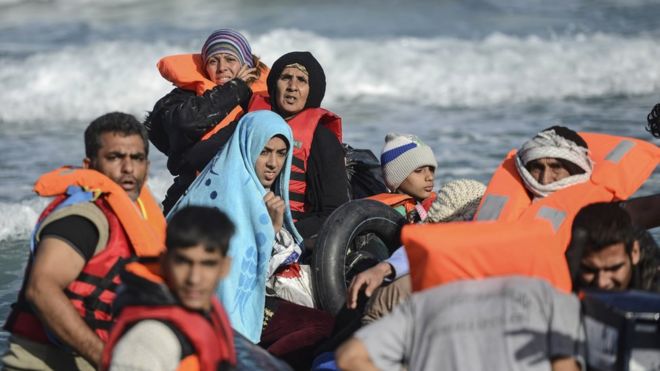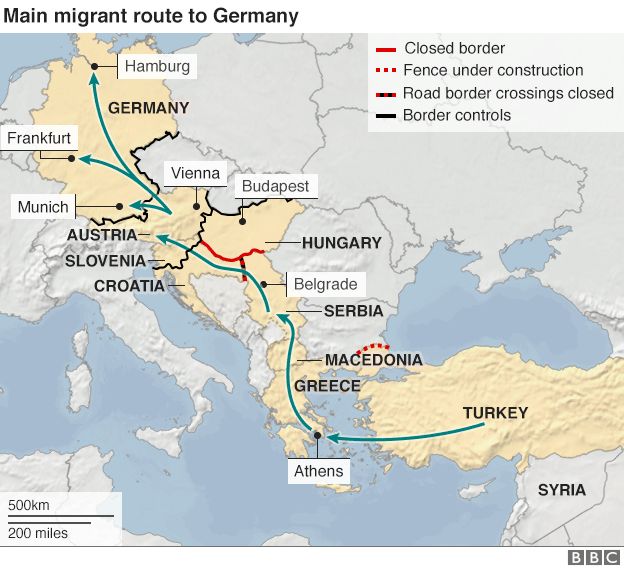Looking On The Bright Side of Life
"We realized that is a criminal process being carried out by the smugglers who cram refugees onto vessels that are not boats, but makeshift inflatables."
"What's happening in the Aegean Sea is a crime."
Greek Prime Minister Alexis Tsipras
 |
|
|
"You cannot say that this influx of refugees is likely to have negative impact, or some kind of a shift of kicking other people out of the labour market."
"Overall, an additional three million persons is assumed to arrive in the EU over the forecast period."
Pierre Moscovici, EU economics, finance official
Over 700,000 people seeking refuge from war and persecution, looking for economic opportunities and hoping for a future in wealthy European countries have flooded into the continent for sanctuary or employment in 2015. Those unrelenting numbers of masses of expectant migrants relying on the humanity of Europeans to rescue them from their homegrown plight have thrown Europe into panic mode, strained capabilities, caused resentment, and created situations of strained relations between member-states.
While the countries of southern and mid-Europe are straining to meet the demands of people passing through their borders en route to more promising destinations in northern Europe, the European Union hierarchy delivers messages of expectations by its 28 members, lest their lack of enthusiasm reflect poorly on the role the EU has assumed by circumstances thrust upon Europe by events beyond their practical control.
EU economic forecasts recently released anticipate that based on present migrant entries along with a "technical assumption" relating to future flows of migrants from similar sources, there will be no slowdown before 2017. The costs to provide shelter, rescue operations and border security will, feels the EU economic forecasting, be offset handsomely within a few years as the refugees begin to add to the economy through a rising work force.
At the same time, the European Union has produced figures predicting that an additional three million migrants might yet flow into the bloc by the end of next year. That massive number would make the 700,000 received thus far this year, causing such huge upheaval, look like a cake-walk. But not to worry, the EU elite certainly isn't ... feeling that in the end the additions will merely be a blip within the larger population.
The European Commission predicted that evenly spaced across the entire 28 EU nations, the three million haven seekers would cause a mere 0.4 percent rise in population, making it unlikely, they feel, to have an deleterious impact on employment levels. There will be, they say, rather complacently, enough jobs to go around for everyone.
Sweden, claims the Commission, with its highest share of refugees per capita will likely experience the highest economic impact, roughly 0.5 percent of its GDP. Migrant transit and destination countries hard hit to the present are certain to realize an impact of 0.2 percent of their GDPs in 2015, while, according to Brussels, Germany and others will benefit in years to come.

Labels: Economy, European Union, Refugees

<< Home